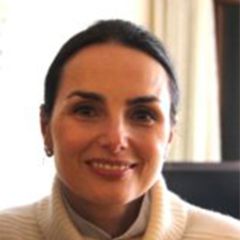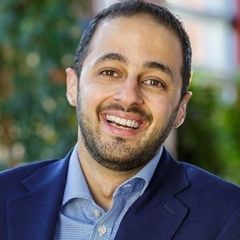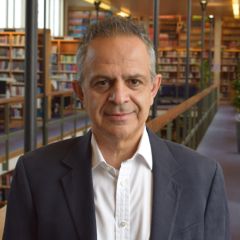Economics
The Cambridge Economics course provides a rounded, rigorous education in economics which is valuable for a wide range of career paths.

Course overview
The Economics course at Cambridge offers students a rigorous training in a wide range of topics in economics with a strong academic focus on both theoretical and applied economics. In each of the three years, you will have at least two compulsory papers on microeconomics and macroeconomics. Other compulsory papers include mathematics, statistics, and econometrics, as well as economic history and politics. Optional papers are taken in the second and third years, and include labour economics, development economics, advanced mathematical methods, philosophy and history of economic thought, industrial organisation, banking and finance, public finance, and political economy. In the third year, students are expected to write a dissertation on a topic of their choice.
For more information about the course and its modules, visit the University website.
What is it like to study Economics at King’s?
Economics students at King’s will usually have two to three hours of lectures each day in the Economics Faculty and will spend the rest of their day either studying, writing essays and solving problem questions, or attending supervisions. Students have one supervision per four to six lectures in each paper they are taking, which usually translates into two to three supervisions per week. Students also attend events such as open lectures and seminars organised by the Faculty of Economics. During supervisions, students will have an opportunity to discuss the content that is covered in the lectures, ask questions, and solve problems. At King’s, we usually admit around eight students in Economics per year. There is also a substantial number of postgraduate students in Economics at King’s, and together with the undergraduate students and fellows in Economics, they make a very vibrant community of about 40-45 economists in any given academic year. Most supervisions take place at college, in the rooms where John Maynard Keynes resided about 100 years ago. This makes the intellectual experience extra special!
What do we look for in an applicant to Economics?
The ideal Economics students are both technically strong with a high level of mathematical skills and adept with language for their economic arguments. They have good intuition and are intellectually curious about various facets of life. Economics is unique in that it combines STEM skills with social sciences, so applicants need to be strong in maths but also essay-based subjects.
Requirements
A Level: A*A*A with one A* in Mathematics
IB: 41-42 points overall with 7, 7, 6 at Higher Level
Subject requirements: Mathematics (A Level) or Mathematics Analysis and Approaches Higher Level (IB)
Admissions assessment: Test of Mathematics for University Admission (TMUA)
Written work: None
Admissions assessment
Candidates for Economics must take the TMUA, which is a pre-registration required test. For more information about the test, please see the University website.
Careers and graduate opportunities
An undergraduate degree in Economics opens many different doors. Many of our past graduates have gone on to work in the finance sector, in economic consulting, as economists in central banks, etc. Others choose careers as educators or join the civil service. Several of our recent graduates continue in higher education with Masters degrees, and often specialise in highly demanded subjects such as data science or financial economics.
What is the best thing about studying economics at King’s?
The Economics community at King’s is very lively and energetic. There are several active, hands-on fellows in Economics at King’s that are friendly, approachable and care about your academic and professional development.
A top tip for applicants to Economics at King’s
Be interested in current political and economic affairs, keep up with the news, and read as much economics press as possible (e.g. The Economist, The Financial Times, etc.). Learn to develop an argument in an analytical way, using your technical knowledge, intuition, and common sense.
The Directors of Studies for 2025-2026 are Prof. Aytek Erdil (Part I), Dr Kamiar Mohaddes (Part IIA), and Prof. Chryssi Giannitsarou (Part IIB).





